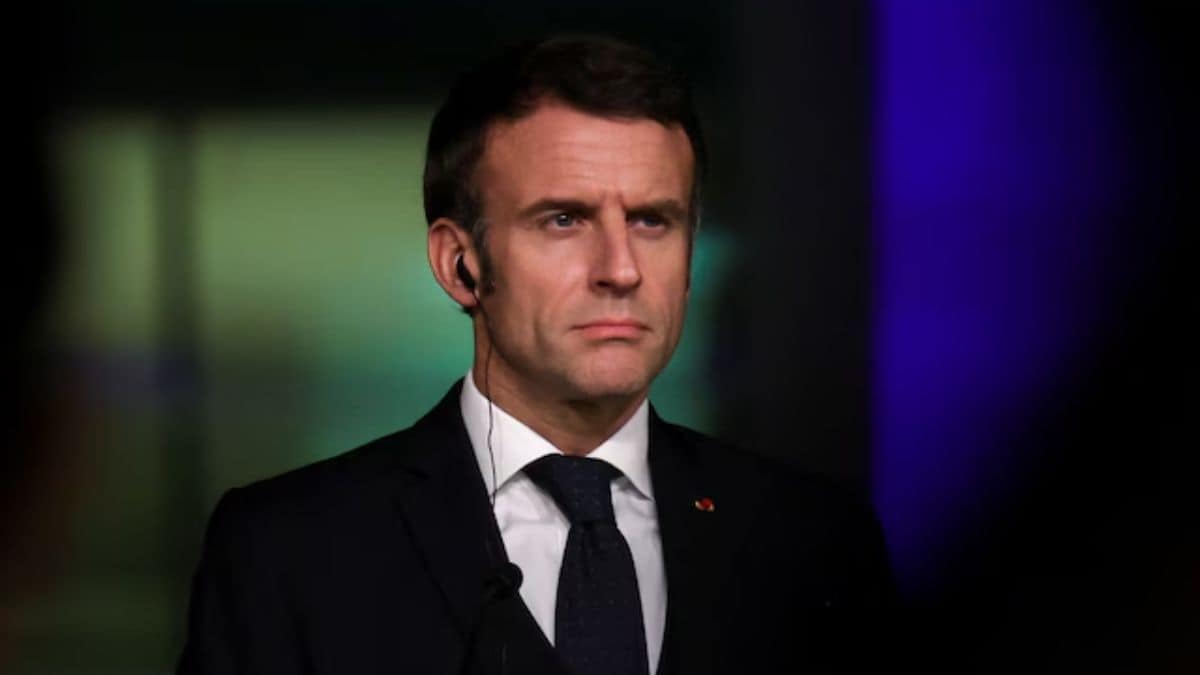Furious statements, deadly riots and questions over a dissident’s murder: a diplomatic spat between Azerbaijan and France has escalated into a full-blown crisis.
Relations have been on a downward spiral since last year, when Paris condemned Azerbaijan’s military offensive against Armenian separatists in the breakaway Karabakh region.
Baku has begun stoking separatist movements in France’s overseas territories, according to the French government, while fuelling anti-French sentiment at home on state television channels and newspapers.
That hostility is spilling onto the streets of the Azerbaijani capital, where people do not hide their anger at “(French President Emmanuel) Macron’s France”.
“We love France and distinguish between the French people and its government, but Macron’s France is clearly our enemy,” 71-year-old retired mathematics teacher Vagif Husseinov told AFP.
Pharmacist Mehriban Mirkasimova said her 14-year-old daughter had “refused to continue studying the French language, which she used to love very much”.
“Even children see the injustice of France,” she added.
Paris, for its part accuses Baku of meddling in the affairs of its overseas territories and dependencies.
In July, pro-independence parties from several French overseas territories agreed to create a joint “liberation front” at a gathering held in Azerbaijan’s capital Baku with an Azerbaijani-backed group’s support.
After deadly riots rocked the French overseas territory of New Caledonia in May – during which protesters brandished Azerbaijani flags and portraits of Aliyev – Baku hosted leaders of French Polynesia’s pro-independence party for a conference on its “right to decolonisation”.
‘Hostile actions’
In May, France’s then-minister of the interior and overseas territories, Gerald Darmanin, said: “Azerbaijan is not a fantasy, it’s a reality … some New Caledonian separatists have made a deal” with Baku.
He said Azerbaijan’s meddling also affects other territories, including French Guiana, the Antilles, Mayotte and French Polynesia.
Pro-independence leaders in New Caledonia deny any Azerbaijani interference.
Roch Wamytan, former president of New Caledonia’s congress and a prominent pro-independence politician, told AFP that he only travelled to Baku in 2023 “because at the time Azerbaijan chaired a meeting of the Non-Aligned Movement”.
A memorandum of understanding between the New Caledonian congress and Azerbaijani parliament, which Wamytan signed in April, was declared null and void by his successor.
A French diplomatic source told AFP that Baku’s “hostile actions” towards France were a matter of concern, though not leading to a complete rupture.
Adding to the tensions, Paris advised its nationals not to travel to Azerbaijan after a national, Theo Clerc, was controversially jailed in September for three years for spraying graffiti on the Baku metro.
Earlier this month, an Azerbaijani dissident, Vidadi Isgandarli, was stabbed to death at his home in the eastern French city of Mulhouse.
Questions over his violent death are swirling in France, with no culprit yet found.
Ties between the countries had been stable for years, despite France – home to a sizeable Armenian diaspora – siding with Yerevan in its decades-long territorial conflict with Azerbaijan.
That dynamic shifted last year, after Baku recaptured its breakaway Karabakh region from Armenian separatists who had controlled it for three decades.
The mountainous enclave’s entire Armenian population of more than 100,000 people fled their homes, in what Yerevan said was a textbook example of ethnic cleansing.
‘Challenge to sovereignty’
Paris’s support for Yerevan’s accusation infuriated Azerbaijan and was interpreted by Baku as a “challenge” to its sovereignty over Karabakh, said Gela Vasadze, Caucasus analyst at the Georgian Strategic Analysis Centre.
Farhad Mammadov, Director of the Center for Studies of the South Caucasus, said: “There is no prospect today of improving relations between the two countries.”
In a written statement to AFP, Azerbaijan’s foreign ministry said France had taken “open and explicit anti-Azerbaijani actions” following a 2020 war that saw Azerbaijan’s military rout Armenian troops.
The tensions come as Azerbaijan gears up to host the United Nations COP29 climate change summit next month which France is expected to attend.
A French diplomatic source told AFP that the crisis will have “no impact on France’s commitment to climate negotiations, in which the country is fully engaged, particularly regarding COP29.”
Swiss-based political analyst Rauf Mirgadirov said: “Azerbaijan is well aware of the red lines of Western democracy and tries not to cross them”.
While Azerbaijan is playing to its domestic audience by criticising France, many French companies still invest in Baku and its burgeoning energy industry.
“Azerbaijani-French relations are not hopelessly spoilt,” Mirgadirov said.
(Except the headline, this story has not been edited by Firstpost staff.)
